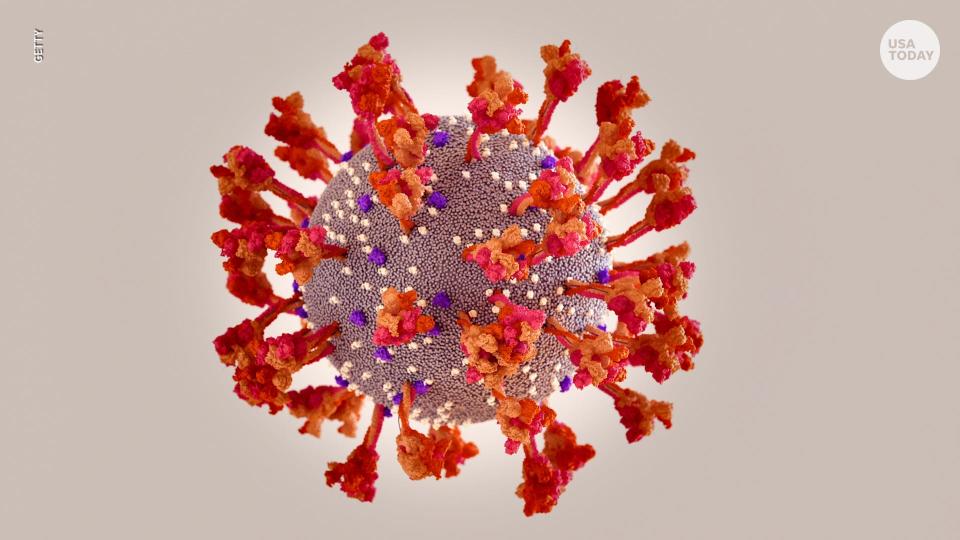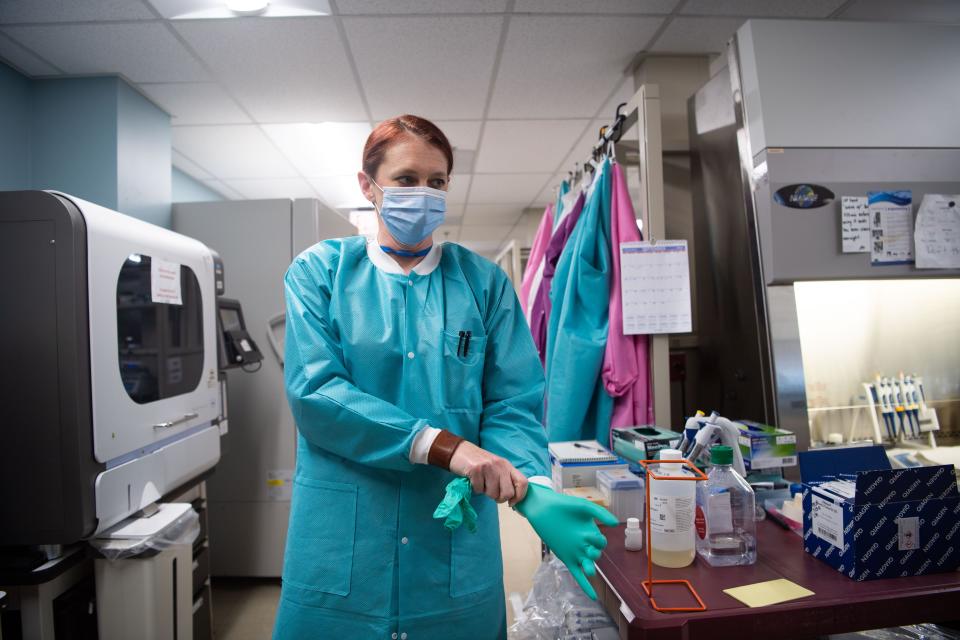COVID-19 omicron variant detected in Nashville resident who traveled to South Africa
The omicron variant — a new, more transmissible strain of the coronavirus — has been found in Nashville for the first time, city health officials announced Thursday.
The Metro Public Health Department said in a news release the variant was detected in a Nashville resident who recently returned from South Africa, where the variant was first identified after Thanksgiving.
The resident, who is fully vaccinated and has received a booster shot, has mild symptoms that do not require hospitalization, according to the news release. They were tested soon after their symptoms first arose.
Brian Todd, a spokesman for Metro Health, said the patient's sample was selected for variant testing because it had an unusually high viral load, not because the resident recently returned from South Africa. However, if the sample was not already chosen, it would have definitely been selected once the travel was discovered, Todd said.
"The lab made the decision prior to knowing the travel history," Todd said. "The (epidemiologist) said the lab selected it for sequencing based on the large amount of virus found in the sample."

The omicron variant has trigged worldwide alarms due to a combination of mutations that make it significantly different from prior strains. Early reports from South Africa and Europe suggest variant appears dramatically more transmissible than the delta variant, which was already far more contagious than the original strain.
The existing coronavirus vaccines also appear less effective against omicron, although still far more effective than no vaccine at all. People who are fully vaccinated and have received a booster shot are believed to be the most protected against the variant.
There is also some early but inconclusive evidence the new variant may produce milder illness, but experts warn the variant will still be a worldwide threat.
Dr. Tedros Adhanom Ghebreyesus, director-general of the World Health Organization, said Tuesday variant is spreading faster than any before it.
"We underestimate this virus at our peril," he said at a news conference in Geneva. "Even if omicron does cause less severe disease, the sheer number of cases could once again overwhelm unprepared health systems."
A VULNERABLE STATE: In the race to protect kids against COVID-19, rural Tennessee falls far behind
In Nashville, Metro Health said omicron is still being studied and promised to release more information "as more as known about it." For now, the agency continues to urge residents to get vaccinated and boosted.
The city offers a consistent schedule of free vaccination events, detailed at asafenashville.org.
"Those who are eligible to receive a booster dose are encouraged to schedule their dose as soon as possible," the release said. "The CDC recommends all people wear a mask in indoor public settings in areas with high numbers of COVID-19 cases."

Based on the extreme transmissibility of the omicron, it's arrival in Nashville was expected. Tennessee Health Commissioner Dr. Lisa Piercey said early this month the variant would inevitably spread to the state, and then it was found in Memphis days later. Dr. Alex Jahangir, who leads the Nashville COVID-19 task force, predicted on Monday the variant would be found in the city "any day now." It was detected three days later.
“I don’t know the impact of omicron here yet,” Jahangir said Monday. “It doesn’t change what we do at all. Stay safe. Like we all know, get your vaccines. If you feel ill, get tested. If you feel really ill, go to a health care provider.”
Additional omicron cases were announced in Hamilton County on Thursday and Knox County on Friday. The Department of Health is scheduled to release a standard report that will identify the total count of omicron known cases in the state next week.
Although the arrival of omicron was all but guaranteed, its quick detection was not so certain. The detection of variants requires an additional level of testing called genome sequencing, which is only performed on a small number of virus samples.
SEARCHING FOR VARIANTS: At the Tennessee state lab, genetic testing hunts for the next COVID-19 variant
Find reporter Rachel Wegner at rawegner@tennessean.com or on Twitter @rachelannwegner. Brett Kelman is the health care reporter for The Tennessean. He can be reached at 615-259-8287 or at brett.kelman@tennessean.com. Follow him on Twitter at @brettkelman.
This article originally appeared on Nashville Tennessean: Nashville reports first case of COVID-19 omicron variant

